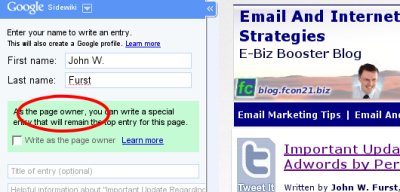It just comes to my mind that I am writing posts about web site development issues only when something bothers me. Like the
DNS problems with my ISP that I had in July this year.
It might not only be me who has noticed that many “Social Media Rich Web Sites” and blogs load very slowly. Even in a modern browser on a new computer.
The first guess is:
“It's all the widgets and external components they load.”
But it is not only how much you load. It is also about in what order you load it … and from what servers … So what do we usually have to deal with:
- many images
- various CSS style sheets
- Javascript files for improved navigation and AJAX trickery within the site
- Javascript widgets and iframes for interaction with other sites
- Flash files
- Java applets
- … etc.
The browser has to request each file individually. Some files are cached in your browser and will be downloaded only once (if your web server is setup correctly).
Then there are other cases where your web server might have to wait for data from third party web sites before it can complete to build a dynamic web page and deliver it to the browser.
The richness of Web 2.0 doesn't make it necessarily easier to be a great webmaster. It's true that widgets can be dropped into a site and add substantial interactivity to it in matter of minutes, but optimizing a site for performance hasn't become much easier.
A lot of different elements to deal with.
Examples:
- affiliate banners or affiliate data feeds
- RSS news feeds
- embedded video and audio content
- Digg, Reddit, and other social media votes
- Twitter, Facebook and Disqus widgets
- User avatars like from myblogcatalog.com or gravatar.com
- etc.
The list is really endless.
And last but not least the HTML part of the page itself (this one single file) could be already pretty big by itself. Or don't you have 20+ comments on your average blog post?
And don't forget, if you are running a content management system like a blog all this content is created on the fly out of a database. (Or are you using Wordpress Super Cache already — or whatever it is called.)
You will notice the longer you have been working on your website the slower it usually gets.
Time to speed up your web site again
→ Continue reading:






